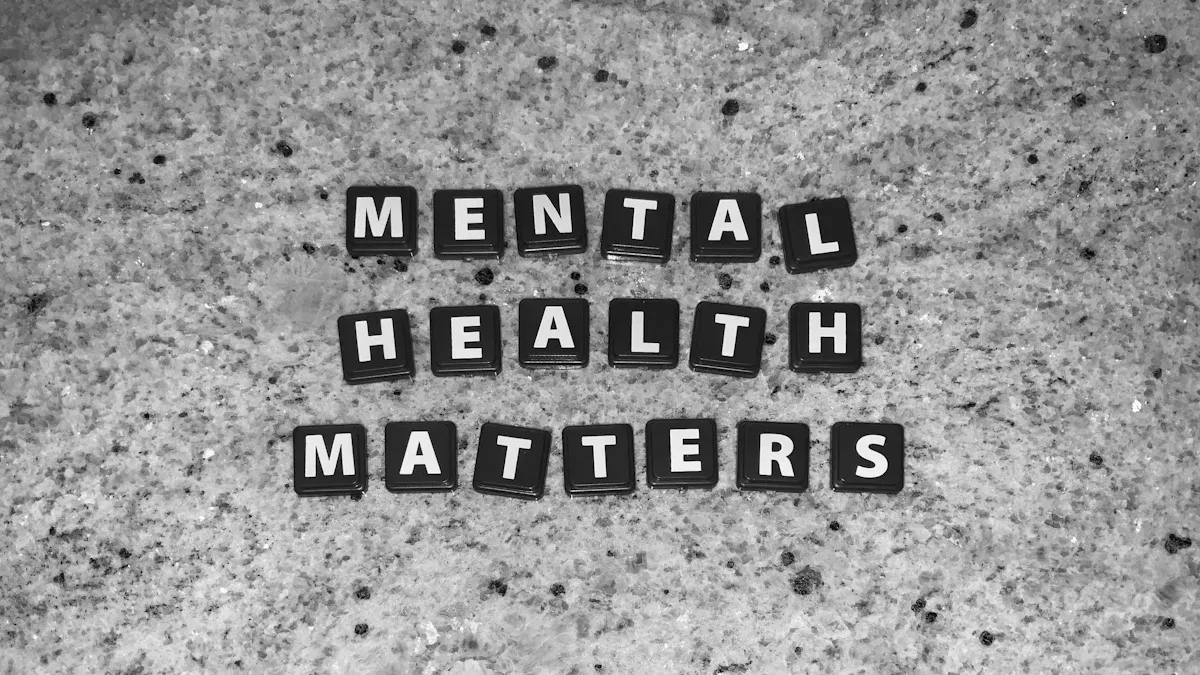You may ask, Can A Covert Narcissist Change? Change can happen, but it does not happen often. Most covert narcissists have trouble seeing their own actions. Therapy and self-awareness can help them. Real progress needs hard work and strong drive.
You should know that getting better is rare and slow. If you deal with these problems, be patient and look after yourself.
Tip: Set goals you can reach. Progress usually comes in tiny steps.
Key Takeaways
Covert narcissists can change, but it does not happen often. It takes a lot of effort and time.
Being aware of themselves is very important. Covert narcissists need to see their actions before they can change.
Help from friends and family matters a lot. Stay close to people who want you to grow.
Therapy works well. Cognitive Behavioral Therapy (CBT) and psychodynamic therapy can find deep problems.
Make goals you can reach. Change happens in small steps, so be happy for each one.
Watch for signs of change. See if they own up to mistakes, listen more, and care about others.
Get ready for hard times. Change does not happen in a straight line, and sticking with it is important.
Can A Covert Narcissist Change

If you ask, “Can A Covert Narcissist Change,” it is a hard question. Change does not happen quickly or often. It depends on how much the person wants to change. It also depends on how strong their narcissistic traits are. You might wish for fast results, but real change needs time and effort.
Barriers
Self-Awareness
Covert narcissists often do not notice their own actions. They have trouble understanding why they do certain things. Here are some common barriers:
Not admitting their narcissistic traits
Not wanting to look at their behaviors
Sometimes covert narcissists see what they do, but they do not know why. They might say their actions are “bad” or “wrong.” They do not understand the real reasons behind their choices. This makes it hard for them to see why they need to change.
Note: Seeing a problem is just the first step. Real change needs emotional effort and strong motivation.
Studies show that knowing about a problem does not mean someone will change. Covert narcissists must feel uncomfortable and want to change. Their actions help them avoid feeling weak or ashamed. This makes it even harder for them to want to change.
Resistance
Resistance is another big problem. Covert narcissists often get defensive when you point out their actions. They may act sad or put themselves down. This can make you feel sorry for them. These behaviors help them keep control and get praise, without really thinking about themselves.
You can see resistance in therapy. The table below shows how some traits affect therapy:
Trait | Impact on Therapy |
|---|---|
Hypersensitivity to Criticism | Makes them react defensively, so self-reflection is hard |
Passive-Aggressive Communication | Causes confusion and makes relationships harder, leading to sneaky resistance |
Avoidance of Vulnerability | Moves focus away from personal issues, so core problems are hard to fix |
Motivation
Narcissistic Injury
You might wonder, “What makes a covert narcissist want to change?” Often, a big event called a “narcissistic injury” starts motivation. This could be losing a job, being rejected, or hitting rock bottom. When their usual ways stop working, they may finally see they need to change.
Tip: Change is more likely when staying the same hurts more than changing.
Therapy and self-awareness can help, but change needs hard work and dedication. Many covert narcissists only get help after a crisis. Even then, progress is slow and not certain.
Common Misconceptions About Change
Many people think covert narcissists can change easily if they try harder. This is not true. New studies show you can teach some actions, like being on time. But teaching empathy to adults is much harder. Real change is not likely unless a big life event pushes them to get help.
Myth: “If you love them enough, they will change.”
Fact: Change depends on their motivation and understanding, not your effort.
You might feel hopeful, but you should set goals you can reach. Change can happen, but it is rare and slow. Take care of yourself and remember you cannot make someone change.
Influencing Factors
Insight
You might wonder why some covert narcissists change and others do not. Insight is very important. When someone sees their own problems, they start to change. You must notice a problem before you can fix it. Many covert narcissists have trouble with this step. They often blame other people or ignore their own actions.
Wanting to change is very important.
Seeing their own problems is needed.
Sticking with therapy for a long time is important.
Real recovery means learning to handle feelings in a grown-up way. You build real friendships and take responsibility for what you do. This takes a long time. You must choose to work on yourself and keep going to therapy. If you ask, “Can A Covert Narcissist Change?” insight is the first step.
Tip: Change starts when you admit there is a problem and choose to deal with it.
Support
Help from family, friends, and professionals can make change easier. You need people who help you grow and tell the truth. Sometimes, family problems make change harder. Covert narcissists often cause cycles of manipulation and dependence. These patterns can stop people from growing.
Families may help unhealthy habits without knowing.
Kids raised like this may think manipulation is normal.
Adults who grew up with covert narcissists may have low self-esteem.
You might see these cycles in your own life. Breaking them takes hard work and support. Therapy can help you see these patterns and learn new ways to connect with others.
Note: Support works best when it helps people be honest and take responsibility.
Severity
How strong narcissistic traits are affects how much someone can change. Some people have mild traits and can get better with help. Others have deep habits that are hard to break. Where you live matters too. Competitive, image-focused places reward charm more than caring. This can make narcissistic habits stronger.
Cultural Influence | Impact on Covert Narcissism |
|---|---|
Reward charisma over empathy, reinforcing narcissistic habits |
A culture that does not value being open can make covert narcissism worse. Early life matters too. If your feelings were ignored as a child, you may look for approval in sneaky ways. Parents who only show love when you do well can cause shame and unhealthy habits.
Callout: The stronger the traits, the harder it is to change. Support and insight help, but progress is slow.
Treatment Options

You might ask what help is out there for covert narcissism. Change can happen, but you need the right help and to work hard. Therapy made for narcissistic behaviors can help you find the main problems and learn better habits.
Therapy
Therapy is a safe place to talk about your feelings and actions. You can learn new ways to handle problems and get along with others. Getting help early makes things better. Covert narcissism is tough to treat because signs are hard to see. If you have depression or use drugs, you need to treat those too. People who want to change and join in therapy do better.
Covert narcissism is harder to treat because signs are hidden.
Treating depression or drug use helps you get better.
Wanting to change and joining in helps you improve.
CBT
Cognitive Behavioral Therapy (CBT) helps you spot and change bad thoughts. You learn to question negative ideas and make new habits. CBT shows how your thoughts affect your feelings and actions. You practice new skills in real life. Many therapists use CBT because it helps many people.
Psychodynamic
Psychodynamic therapy looks at your past and how it affects you now. You talk about early relationships and hidden feelings. This therapy helps you see why you act certain ways. You learn to face hard feelings and understand yourself better. Psychodynamic therapy takes time, but it can help you change deeply.
Medication
Medicine does not fix covert narcissism, but it can help with other problems. If you feel sad, worried, or have mood swings, your doctor might give you medicine. Some people need help with strong symptoms.
Medication Type | Purpose | Examples |
|---|---|---|
Antidepressants | Help with sadness, worry, and low mood | Prozac (fluoxetine), Zoloft (sertraline), Effexor (venlafaxine), Wellbutrin (bupropion) |
Mood Stabilizers | Help control mood swings | N/A |
Antipsychotics | Help with strong symptoms | N/A |
Note: Medicine works best when you use it with therapy and healthy habits.
Commitment
Sticking with therapy for a long time is very important. You need to keep going to therapy and practice new skills every day. Working hard helps you learn better ways to cope and have better relationships. Therapy helps you deal with past hurts, learn empathy, and understand yourself.
Regular therapy makes your relationships better.
You learn empathy and self-awareness as time goes on.
If you ask, “Can A Covert Narcissist Change,” remember that change is slow and takes work. You need to stay motivated and keep trying. Help from experts and loved ones really helps.
Signs of Change
When you look for signs that a covert narcissist is changing, you need to watch for real shifts in how they act, feel, and treat others. Change does not happen overnight. You can spot progress by looking for new patterns in daily life.
Behavior
You may notice changes in how someone acts before you see changes in how they feel. Here are some signs to look for:
Taking responsibility: They start to admit when they make mistakes.
Less blaming: They stop blaming others for their problems.
More honesty: They tell the truth, even when it feels hard.
Better listening: They pay attention when you talk and do not interrupt as much.
If you see these changes, you may feel more respected and heard. Small steps matter. Even a simple “I’m sorry” can show growth.
You might also see them try new ways to solve problems. They may ask for help or try to fix things instead of hiding or making excuses. These actions show they want to build trust.
Empathy
Empathy means understanding how others feel. For covert narcissists, this skill often needs work. You can measure empathy in different ways. Some therapists use special tools to track progress.
For example, the Jefferson Scale of Empathy (JSE-S) checks how much someone cares about others in real-life situations. Higher scores mean more empathy. Another tool, the Hypersensitive Narcissism Scale (HSNS), measures covert narcissism. Lower scores here mean less narcissism.
Instrument | What It Measures | How It Works | Score Range | What Scores Mean |
|---|---|---|---|---|
JSE-S | Empathy | 1-7 scale | 20-140 | Higher = more empathy |
HSNS | Covert Narcissism | 1-5 scale | 10-50 | Higher = more narcissism |
You may notice empathy when they:
Ask how you feel
Show concern when you are upset
Try to comfort you
Tip: Real empathy shows up in actions, not just words. Watch for caring gestures, not just promises.
Consistency
Consistency means they keep up these new behaviors over time. Change is not just a one-time thing. You want to see:
Regular apologies when they hurt someone
Steady effort to listen and understand
Fewer mood swings or angry outbursts
If you see these changes last for weeks or months, you can trust that real growth is happening. Setbacks may happen, but true change means they get back on track and keep trying.
Remember: Lasting change takes time. Celebrate small wins and keep your eyes open for steady progress.
Expectations
Recovery
You might wonder what recovery looks like for covert narcissism. Recovery does not go in a straight line. You need to be patient and set goals you can reach. Change is slow and happens in small steps. Some days you feel hopeful. Other days you feel sad or stuck. This is normal.
Therapists use different ways to help you get better. Some therapies focus on trauma, feelings, or relationships. Daily habits are also important for getting better. Here is a table that shows some common therapies and daily habits that help recovery:
Therapeutic Approaches | Description |
|---|---|
EMDR | Helps you work through painful memories and lowers stress |
Somatic Experiencing | Helps your body let go of trapped trauma energy |
Internal Family Systems (IFS) | Helps you heal and connect with different parts of yourself |
Cognitive Behavioral Therapy (CBT) | Teaches you to change negative thoughts and actions |
Dialectical Behavior Therapy (DBT) | Gives you skills to handle emotions and build better relationships |
Daily Practices | Description |
|---|---|
Breathwork | Deep breathing helps calm your mind and body |
Mindfulness Meditation | Helps you notice your feelings and control your emotions |
Yoga | Uses movement and breathing to help you heal |
Interest Exploration | Trying new hobbies helps you find joy and purpose |
Boundary Development | Learning to set limits keeps you safe and healthy |
You may see progress when you feel more calm and less upset. It might get easier to talk about your feelings. You could build stronger friendships and set better limits. Recovery takes time, but every small step is important.
Tip: Celebrate small wins. Even one honest talk or a new hobby shows you are growing.
When to Move On
Sometimes, you have to decide if staying with a covert narcissist is good for you. You may want things to get better, but you must keep yourself safe. Here are signs it might be time to move on:
Know when going no contact is the best way to heal.
Notice if the relationship feels too toxic or unsafe.
Accept that moving on is needed if the relationship is unhealthy.
You deserve to be treated with respect and kindness. If you feel tired, worried, or unsafe, you can choose a better life. Many people get stronger by asking for help and finding new support.
Note: Moving on is not failing. It is a brave step toward healing and self-care.
Conclusion
You may feel guilty or scared about leaving. That is normal. You can talk to trusted friends or experts for help. Remember, your health and happiness come first. Recovery is possible, but sometimes the best choice is to leave and focus on yourself.
Change in covert narcissists is possible, but it does not happen often. It takes a lot of effort and time. You should set goals that you can reach. Focus on taking care of yourself.
Know that change needs hard work and patience.
Be with people who help you feel safe.
Do things that help you relax or write in a journal.
Ask friends, family, or experts for help.
Transform your Inner Chaos into authentic personal growth!
Stay informed on the latest research advancements covering:
Co-Parenting With A Narcissist
Frequently Asked Questions
Can covert narcissists recognize their own behavior?
Most covert narcissists have trouble seeing what they do. They often deny things or blame others. Some learn more about themselves in therapy, but this takes time and work.
Is therapy effective for covert narcissism?
Therapy can help if you keep trying. Cognitive Behavioral Therapy and psychodynamic therapy may work well. You need to want to change and think about your actions.
How long does change usually take?
Change is slow. You might see small changes after months or years. Working hard and having support helps a lot.
What should you do if a covert narcissist refuses help?
You cannot make someone change. Take care of yourself first. Set rules and ask trusted people or experts for help.
Can covert narcissists feel empathy?
Empathy is often weak. Some learn to care more with practice and therapy. Look for real caring in what they do, not just what they say.
Are covert narcissists aware of the harm they cause?
Many do not know how their actions hurt others. You may need to share your feelings clearly. Sometimes, they learn more with feedback and counseling.
What signs show real change in a covert narcissist?
Watch for honest “I’m sorry,” less blaming, and better listening. If these changes last, it means real progress.
Should you stay in a relationship with a covert narcissist?
Your safety and happiness come first. If you feel hurt or unsafe, think about leaving. Friends and experts can help you choose what is best.
